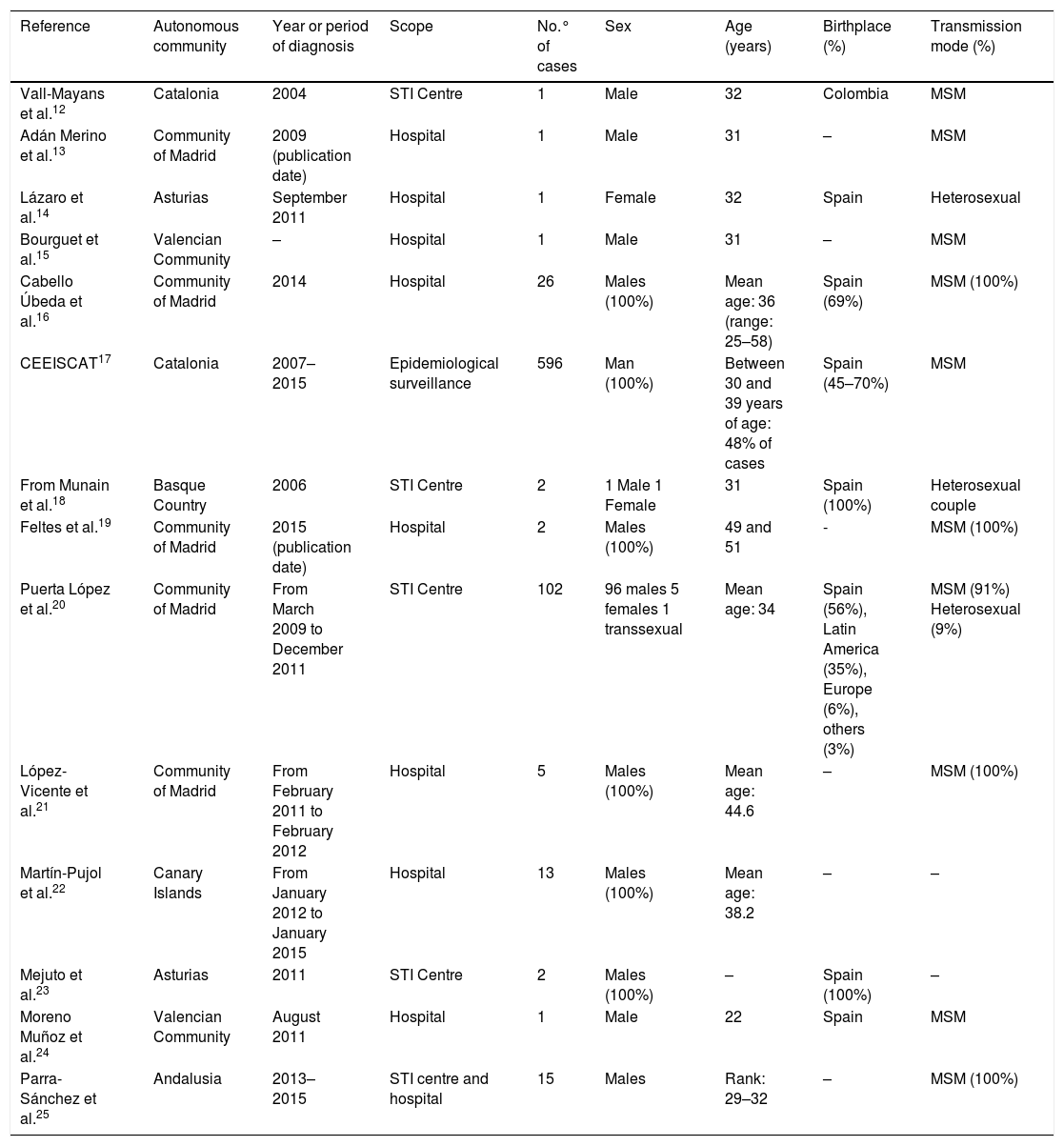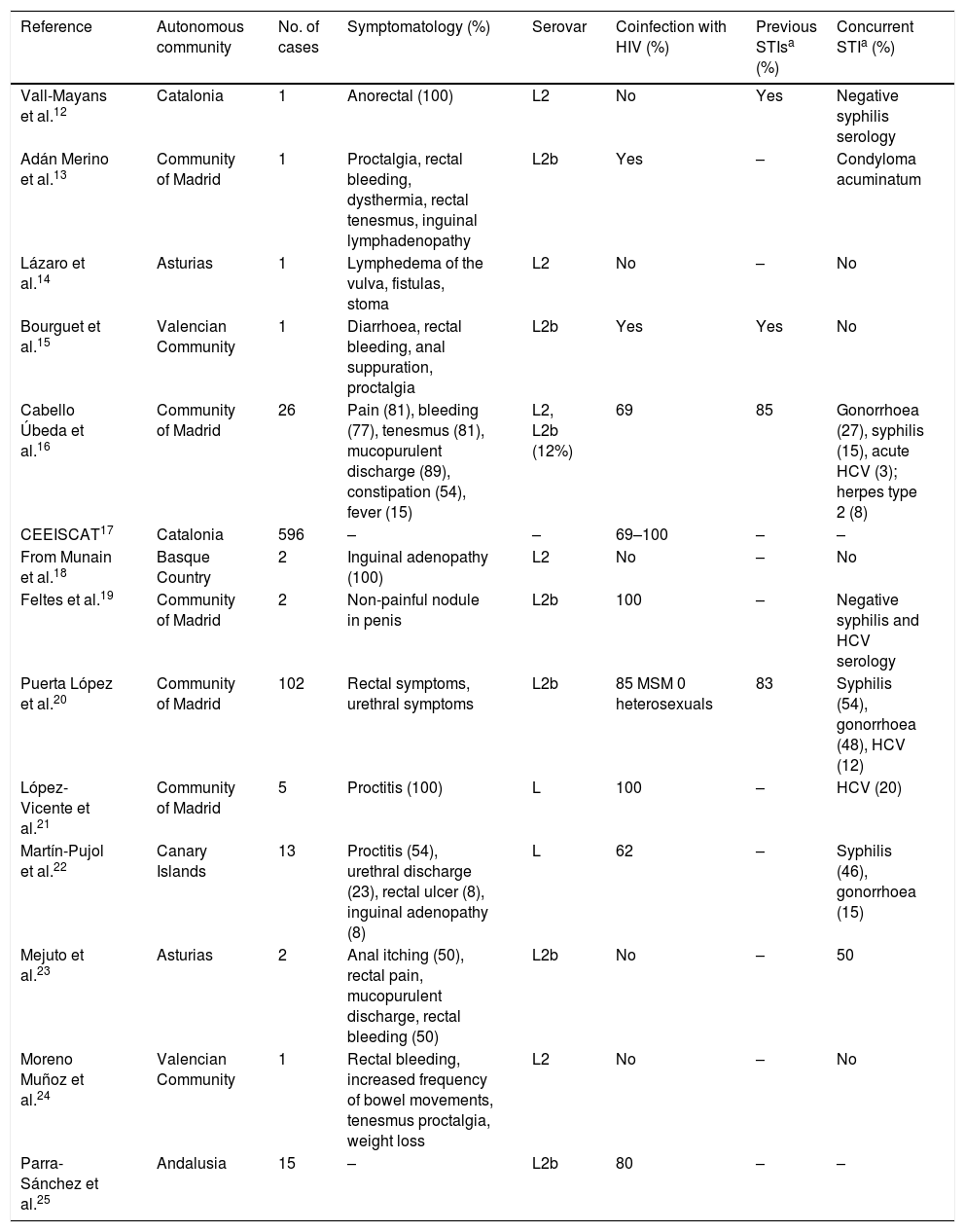Lymphogranuloma venereum (LGV) was an unusual disease in Europe until 2003, when several outbreaks among men who have sex with men (MSM) emerged. Since 2015, LGV has been included notifiable disease in Spain. Our aim is to review LGV cases published in Spain from 2005 to 2015. Fourteen studies met the inclusion criteria describing cases in 7 autonomous regions. Most cases were MSM, Spaniards, aged between 30 and 45, with anorectal syndrome. L2 was the predominant serotype isolated. More than 60% of the cases among MSM were co-infected with HIV and nearly half of those reported another concurrent STI. Since the first LGV case published more than 10 years ago, this disease has spread across Spain. Epidemiological and clinical characteristics of cases are similar to cases described in Europe. Implementation of national surveillance will improve information about LGV's magnitude and its evolution, key elements for its control.
El linfogranuloma venéreo (LGV) era infrecuente en Europa hasta 2003, cuando surgieron brotes en hombres que tenían relaciones sexuales con hombres (HSH). Esta enfermedad es de declaración obligatoria nacional a partir de 2015. El objetivo es describir los casos de LGV publicados entre 2005 y 2015 en España. Se identificaron 14 publicaciones con casos en 7 comunidades autónomas. La mayoría fueron HSH, españoles, entre 30 y 45 años y con sintomatología rectal. El serovar más frecuente fue el L2. Más del 60% de los casos en HSH estaban coinfectados con el VIH y casi la mitad presentaba otras infecciones concurrentes. Tras la descripción del primer caso publicada en 2005, el LGV se ha distribuido ampliamente en España, con características similares a las de los casos descritos en Europa. La puesta en marcha de la vigilancia estatal del LGV permitirá conocer su magnitud y tendencia y caracterizar los casos, lo que es clave para su control.








